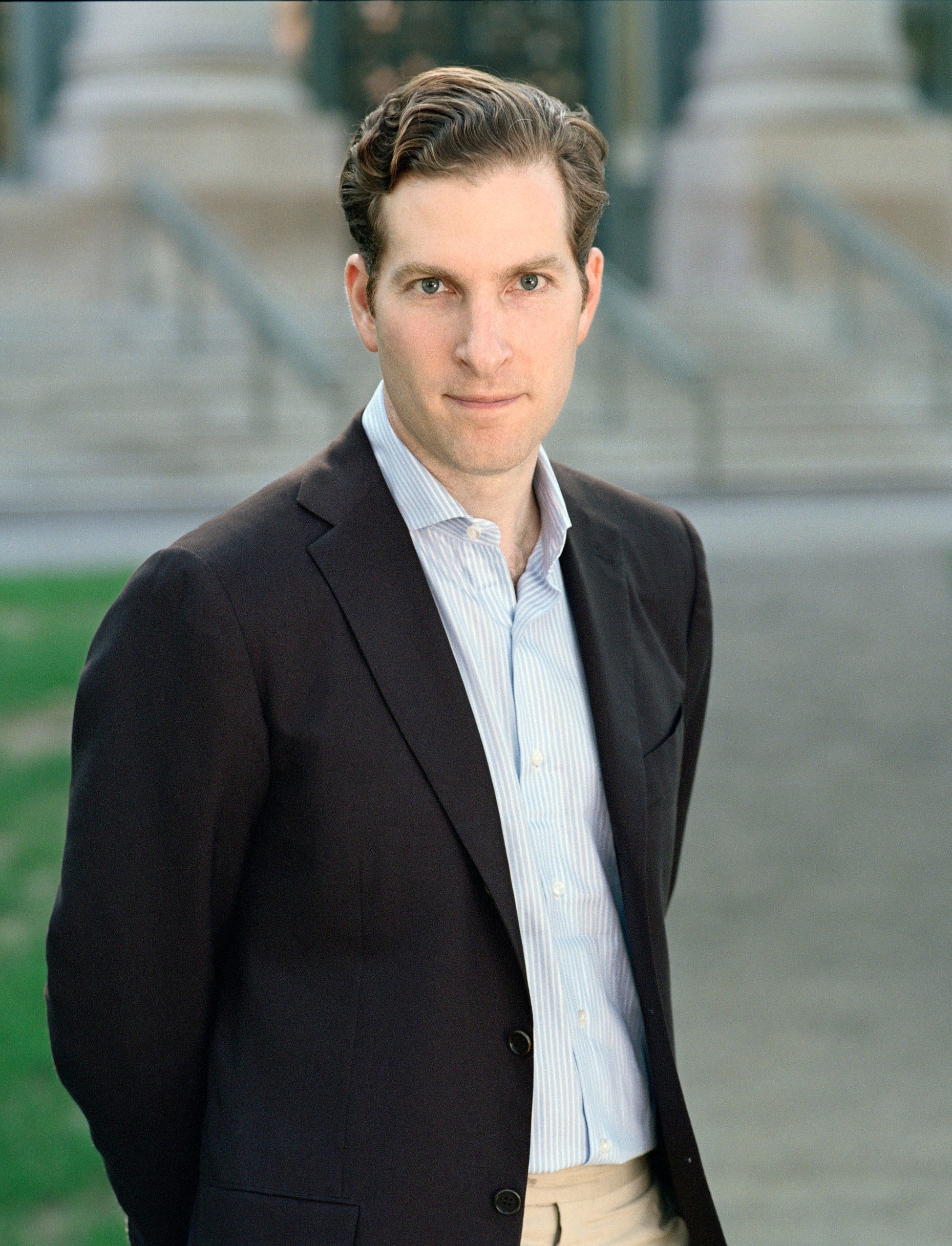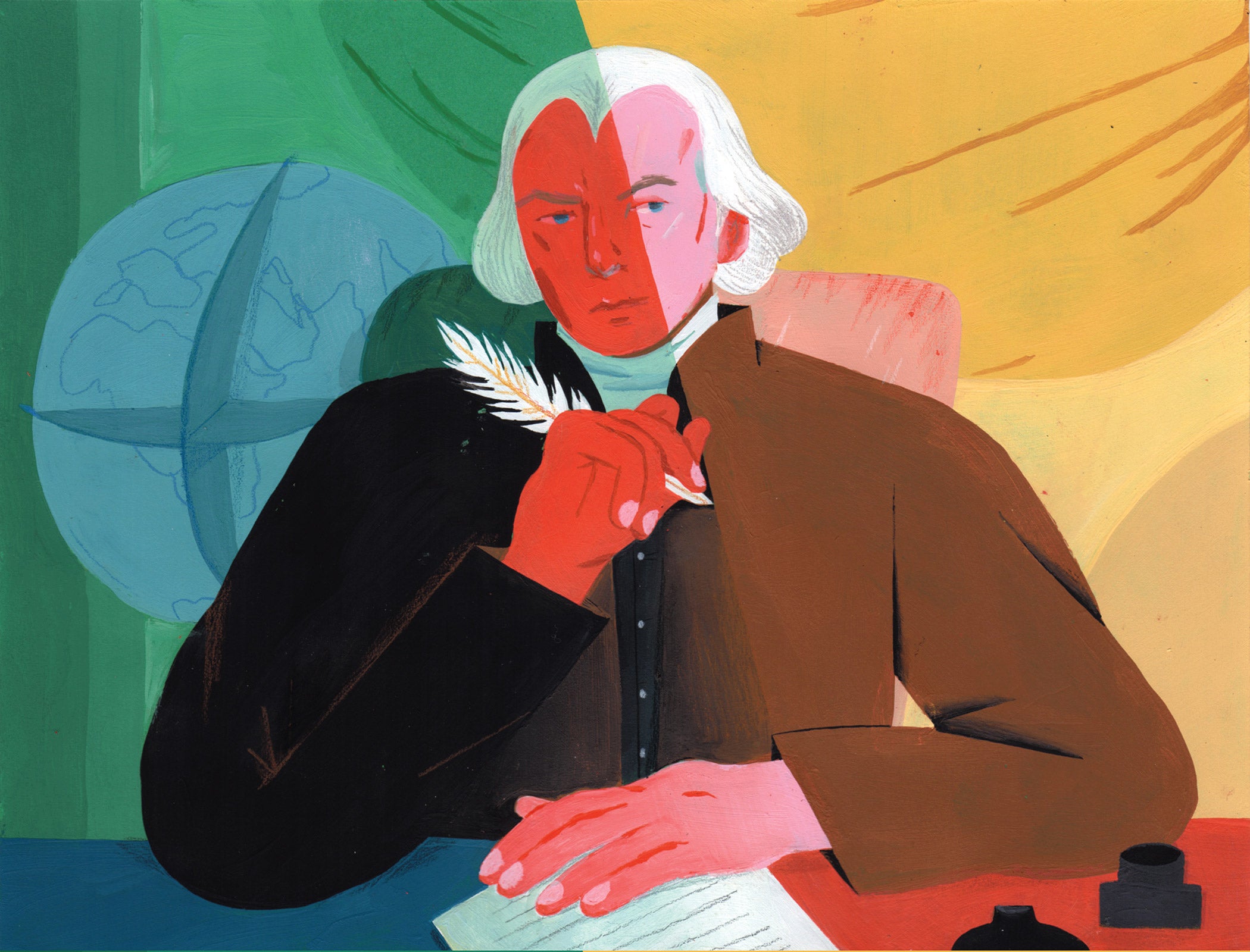Professor Noah Feldman is the first to admit that James Madison will probably never merit a hip-hop Broadway musical like his partner in Constitution drafting turned bitter political foe.
Madison was as understated and self-effacing as Alexander Hamilton was full of passions and extreme emotions. Still, Feldman had long since concluded that this “almost forgotten Founder” deserved far more recognition—and a fuller biography—than he’d received.
Unlike George Washington or Thomas Jefferson, no monument was built to honor Madison in the nation’s capital. “You have to see the Constitution as his monument,” said Feldman. “His influence is hidden in plain sight.”
Madison’s role in crafting the Constitution is just one point of focus of Feldman’s 800-page biography—“The Three Lives of James Madison: Genius, Partisan, President” (Random House)—which also details his role as founder of the first American political party and as the nation’s fourth president
“Madison in a deep way ended up contradicting his own constitutional vision.”
Feldman traces his interest in Madison back to his clerkship with U.S. Supreme Court Justice David Souter ’66, to whom the book is dedicated. Souter gave his clerks assignments to work on in the summer before the justice returned from New Hampshire, and he asked Feldman to explore Madison’s thoughts on religious liberty.
Feldman was drawn again to Madison at the start of his academic career, when he focused on law and religion and studied Madison’s experience fighting for religious liberty in Virginia in 1784. Writing his book “Divided by God: America’s Church-State Problem—and What We Should Do About It” convinced Feldman he had to return to Madison one day as the subject of a full biography.
“If you do constitutional law, as I do, James Madison looms over our world as a colossus—he’s the Einstein and the Newton of constitutional law rolled into one,” Feldman said. “And so I’ve always wanted to take on Madison as a topic and a subject, and I became convinced his story needed to be retold for the present.”
It took six years for Feldman to produce what he considers the “longest and hardest thing I’ve ever done.” It is Madison’s role as political partisan about which he says he learned the most.
Madison, who wrote the Constitution with the goal of keeping political factions at bay, went on to found the first opposition political party, the Democratic-Republicans, in response to what he saw as Hamilton’s excesses.
“Madison in a pretty deep way ended up contradicting his own constitutional vision,” Feldman said. “That I think was the most shocking thing to me and the puzzle that most motivated me in trying to figure out the trajectory in his career.”

Feldman says he came to see that shift as a “move from innocence to experience, from a theory of the Constitution” to “actually being in the government.”
Just because Madison and other Founders came to a consensus when writing the Constitution didn’t mean they would all interpret it the same way later. “In particular, he believed that Hamilton, his close ally in the ratification process, in a profound way was committed to a constitutional vision that he believed would destroy the Constitution itself,” Feldman said.
Madison’s legacy of fomenting political tension and the sharp language he used to describe his foes continue to reverberate today, he says.
“When we criticize our political enemies in the United States, we don’t just say that they’re wrong or that they have the wrong policies, but we actually go further and claim that our political enemies are trying to destroy the Constitution,” Feldman said. “We see that in our current political moment on both sides.”
Equally American is the tendency to bemoan partisanship, according to Feldman, unlike in other countries where all sides recognize that electoral politics “are deeply and profoundly partisan.”
“We aspire to nonpartisanship even as we tend to descend into partisanship,” he added. “Both impulses were present in Madison.”
Although Broadway may not be in the fourth president’s future, Feldman thinks the relationship between Madison and Hamilton is inherently dramatic. He can imagine the story of their friendship and collaboration on the Federalist Papers and of the collapse of that close relationship as the subject of a great television miniseries.
